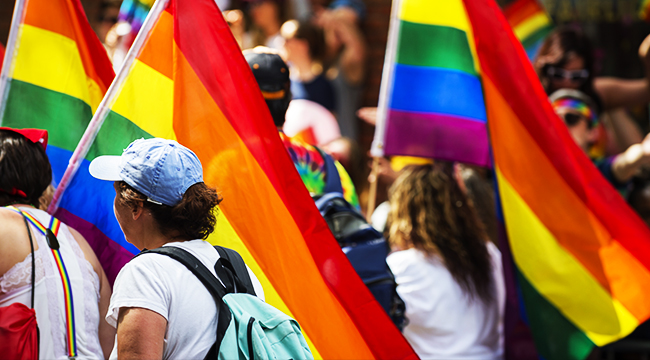
The Trump administration, despite proclaiming otherwise, has been decidedly cold to LGBT Americans, from attempting to ban transgender soldiers to refusing to acknowledge Pride Month. But there was no more vivid illustration that the Justice Department arguing that Title VII of the Civil Rights Act of 1964 doesn’t apply to LGBT Americans, thus allowing workplaces to fire LGBT employees at will. The Second Court of Appeals, however, has decided that Title VII does apply, and that may have far-reaching implications.
To understand why this decision is so important, it’s worth digging into what Title VII does and how this decision prevents the erosion of the Civil Rights Act:
- What is Title VII of the Civil Rights Act? Ever read a disclaimer on a job application that says a business or state agency doesn’t discriminate on the basis of “race, color, religion, sex, or national origin?” That’s from Title VII. It is essentially a law dictating, in spirit, anyway, that Americans have equal rights in the workplace and your employer shouldn’t care about any personal characteristics.
- But, of course, Title VII is violated constantly, and LGBT Americans are unfortunately common targets: More than half of states lack any overall protections for LGBT Americans, which creates a patchwork of law. One in four LGBT Americans reported some form of discrimination at work, according to a survey by Out & Equal.
- Title VII doesn’t explicitly protect LGBT people, but the Obama administration argued that was classified as sex discrimination: The interpretation of the law was that if a business fired somebody over their sexual orientation or gender identity, it was violating Title VII due to sex-stereotyping. That is, if a business had some expectations of somebody’s personal life based on their visible characteristics and that person turned out to have a different personal life, they were being stereotyped.
- The Trump Administration disagreed, in the case of Donald Zarda: Donald Zarda, a skydiving instructor, alleged he was fired for disclosing his personal life to a customer in 2010, and the case has been winding through the court system ever since. In an unusual move, the Justice Department filed a brief arguing against the Obama Administration’s interpretation of Title VII.
- The Second Court, unanimously, disagreed: The court has ruled that Title VII does apply to the case and has remanded Zarda’s case for litigation. This ruling is a fairly big deal, since it both rejects the Trump Administration’s interpretation of Title VII and backs up a 2017 ruling from the Seventh Circuit Court of Appeals. Now it’s up to Zarda’s former employer to decide — do they want to try and go to the Supreme Court, or just deal with the suit?
This could have enormous implications for LGBT Americans. It’s likely that there will be some sort of attempt to put this case, or a similar one, in front of the Supreme Court, and the main question is where the courts will rule, if they accept a case. Will they rule based on a limited interpretation of text, or the spirit of the law?
